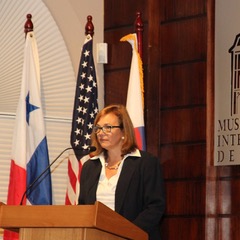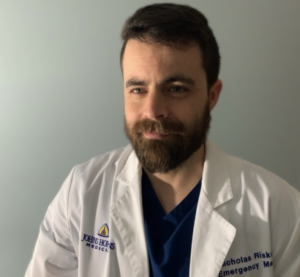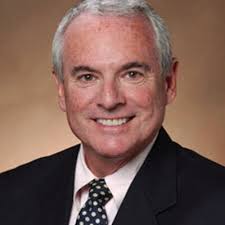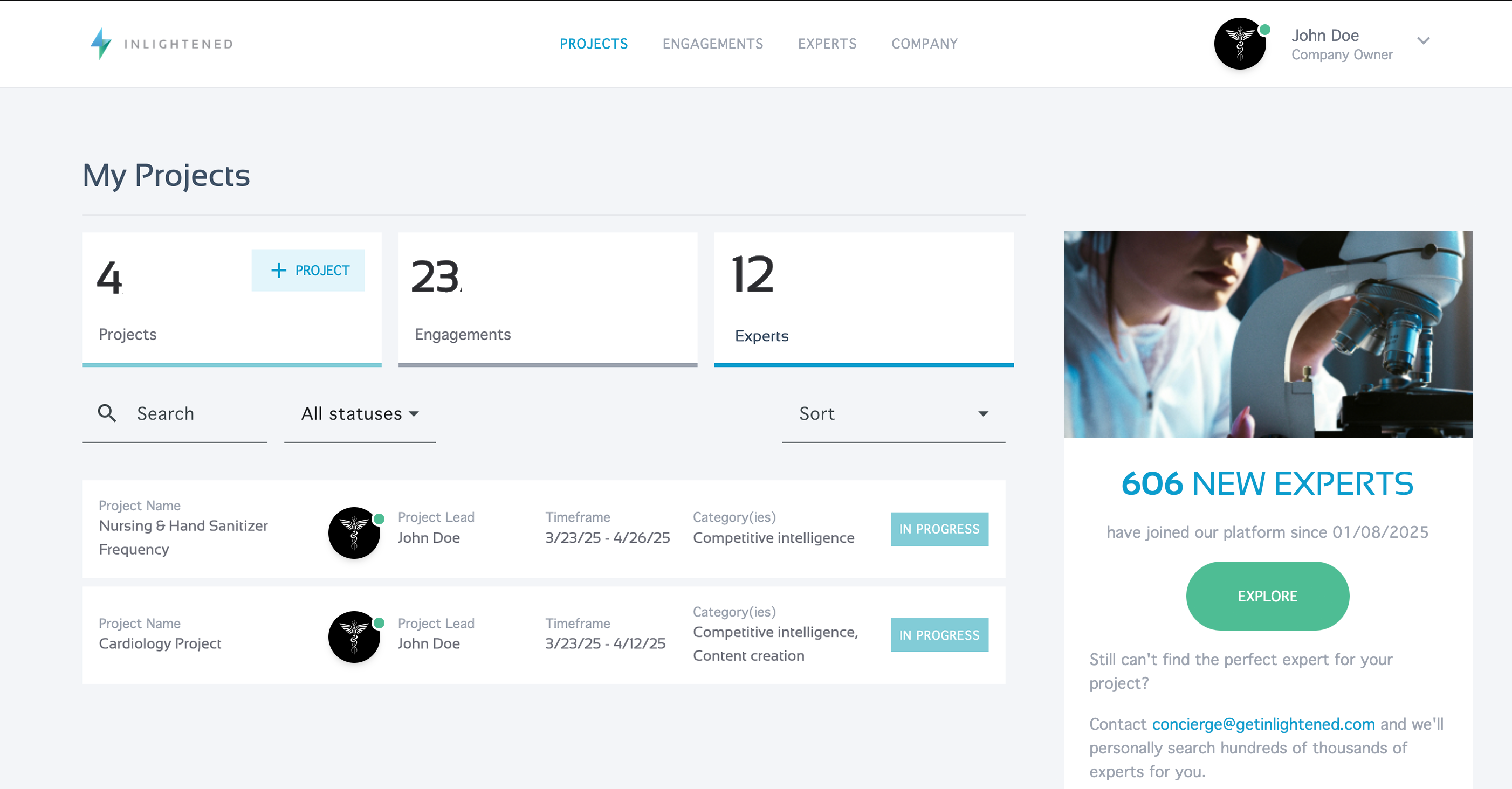Expert insights: Empathy, isolation, and academia in the era of COVID-19
To say a lot has happened in the past year would be an understatement. We launched Inlightened. COVID-19 placed unprecedented stress on the healthcare system, exposed disparities in care, and urged the importance of empathy, diversity, inclusion, and trust moving forward. From EHR innovation to the future of primary care and telehealth, there is much work left to be done. Looking back, and looking forward, here are reflections and takeaways from some of our experts.
An empathetic approach to public health around the world
“It was impossible to ignore the pandemic’s disproportionate impact on vulnerable populations, the ripple effect of which remains monumental. The realization that we are all connected has stressed the importance of healthy governance that focuses on the greater good, and sheds light on just how much work we have left to do in terms of public health.
After thousands of Peace Corps volunteers and public health specialists were evacuated across the globe, we mobilized virtual health education and resources to aid in the ongoing fight against both COVID-19 and HIV. This successfully-piloted service now reaches 40 countries, and reminds us of the importance of supporting the specific needs of the local community.
I was pleasantly surprised at how quickly the science community was able to produce an effective vaccine for a virus that mutates — a milestone has not yet been accomplished for HIV — but we can’t lose focus in assuring all nations have a fair opportunity to access the vaccine.”
 Diane Carazas, BSSW, MIA, is an English-Spanish bilingual social worker, business consultant, and professional leadership coach. She possesses more than 25 years of international administrative leadership experience spanning human resource management, training, strategic planning, financial management, organizational development, performance management, and public speaking. Diane has spent more than a decade in the Peace Corps — most recently facilitating sustainable collaboration with the Department of Defense and supporting the development of the President’s Emergency Plan for AIDS Relief (PEPFAR) program as Botswana’s Country Director — and previously led operational, morale, and development improvement efforts from Paraguay to Panama. Passionate about coaching individuals and organizations to achieve their full potential, Diane brings a global perspective to clients that not only dates back to her role at Innovation Partners International, and in the face of the COVID-19 pandemic, has sparked the creation of novel, lifesaving solutions.
Diane Carazas, BSSW, MIA, is an English-Spanish bilingual social worker, business consultant, and professional leadership coach. She possesses more than 25 years of international administrative leadership experience spanning human resource management, training, strategic planning, financial management, organizational development, performance management, and public speaking. Diane has spent more than a decade in the Peace Corps — most recently facilitating sustainable collaboration with the Department of Defense and supporting the development of the President’s Emergency Plan for AIDS Relief (PEPFAR) program as Botswana’s Country Director — and previously led operational, morale, and development improvement efforts from Paraguay to Panama. Passionate about coaching individuals and organizations to achieve their full potential, Diane brings a global perspective to clients that not only dates back to her role at Innovation Partners International, and in the face of the COVID-19 pandemic, has sparked the creation of novel, lifesaving solutions.
No person is an island
“This past year has taught me just how expansive humans’ capacity for resilience is… how the sharing of compassion and empathy can impart enormous strength, and the effects of isolation can be detrimental.
For the past year, in emergency departments across the country, visitors have been prohibited. One might have guessed the impact of such restrictions on patients who might be scared, in pain, and/or impaired by acute injury or illness. But what surprised many of us was how hard it became for providers to deliver quality care to these isolated individuals. Discussions about treatment options, follow up instructions, and tough diagnoses required many more points of contact; getting medical histories from patients who were overwhelmed or unable to communicate became significantly more challenging; care has suffered all around. Many of us eagerly look forward to the day we can once again walk into a patient’s room and see multiple faces waiting to engage and participate in the care process.
In thinking of healthcare workers, the pandemic placed an increasing focus on protecting them, so they could continue to do their jobs and protect patients. Shortages in protective equipment have been widespread since the earliest days of COVID, and were felt even more acutely by our colleagues working abroad in low-resource settings. We conducted an analysis which found that in low resource settings, for every $59 investment in protective equipment, a case of COVID in a health worker can be averted, and for around $4,000 a health worker’s life can be saved. Furthermore, the return on investment to society for keeping these health workers safe and on the job was immense.”
 Nicholas Risko, MD, MHS, is a board-certified emergency medicine physician and Residency Site-Director at Howard County General Hospital. He also serves as Assistant Director of the Johns Hopkins Center for Global Emergency Care. Passionate about improving access to high quality emergency care around the world — especially in low-resource settings — Dr. Risko has experience partnering with UNICEF and the World Health Organization on international vaccine access, leading educational efforts from Brazil to Mozambique, consulting with USAID on critical care capacity, and driving global health policy at a systems level. He has been on the frontline of the COVID-19 epidemic, caring for all levels of acuity in addition to managing associated infrastructure demands.
Nicholas Risko, MD, MHS, is a board-certified emergency medicine physician and Residency Site-Director at Howard County General Hospital. He also serves as Assistant Director of the Johns Hopkins Center for Global Emergency Care. Passionate about improving access to high quality emergency care around the world — especially in low-resource settings — Dr. Risko has experience partnering with UNICEF and the World Health Organization on international vaccine access, leading educational efforts from Brazil to Mozambique, consulting with USAID on critical care capacity, and driving global health policy at a systems level. He has been on the frontline of the COVID-19 epidemic, caring for all levels of acuity in addition to managing associated infrastructure demands.
Rethinking the future of academic medical center work
“Now more than ever before, pandemic burnout is rampant in academia and academic medical centers (AMCs).
As universities struggle with the economic fallout of repeated closures, burnout among academic researchers will probably continue for some time amid lay-offs or hiring freezes, say higher-education researchers. There are no quick or easy solutions to burnout, especially with no end in sight to its underlying structural causes; academic scientists are often largely left to muddle through as best they can.
Now is the time for AMCs to make changes to accommodate the present and future changes in sickcare work. They should no longer rely on organizational structures and processes that are increasingly obsolete in the wake of COVID.”
 Arlen D. Meyers, MD, MBA, is a board-certified otolaryngologist, academic, and serial physician executive. He serves as the President and CEO of the Society of Physician Entrepreneurs (SoPE) and Professor Emeritus of otolaryngology, dentistry, and engineering at the University of Colorado School of Medicine and the Colorado School of Public Health. Dr. Meyers has created several medical device and digital health companies over the course of his career. Most have failed. He is a former Harvard-Macy Fellow, completed a Fulbright scholarship at Kings College in London, and consults for and speaks to corporate, government, and higher education audiences, domestically and abroad. Dr. Meyers boasts a number of editorial accomplishments and responsibilities, was named one of Modern Healthcare’s 2011 50 Most Influential Physician Executives, and was selected amongst CIOLook’s 2019 Influential Leaders in Healthcare.
Arlen D. Meyers, MD, MBA, is a board-certified otolaryngologist, academic, and serial physician executive. He serves as the President and CEO of the Society of Physician Entrepreneurs (SoPE) and Professor Emeritus of otolaryngology, dentistry, and engineering at the University of Colorado School of Medicine and the Colorado School of Public Health. Dr. Meyers has created several medical device and digital health companies over the course of his career. Most have failed. He is a former Harvard-Macy Fellow, completed a Fulbright scholarship at Kings College in London, and consults for and speaks to corporate, government, and higher education audiences, domestically and abroad. Dr. Meyers boasts a number of editorial accomplishments and responsibilities, was named one of Modern Healthcare’s 2011 50 Most Influential Physician Executives, and was selected amongst CIOLook’s 2019 Influential Leaders in Healthcare.






